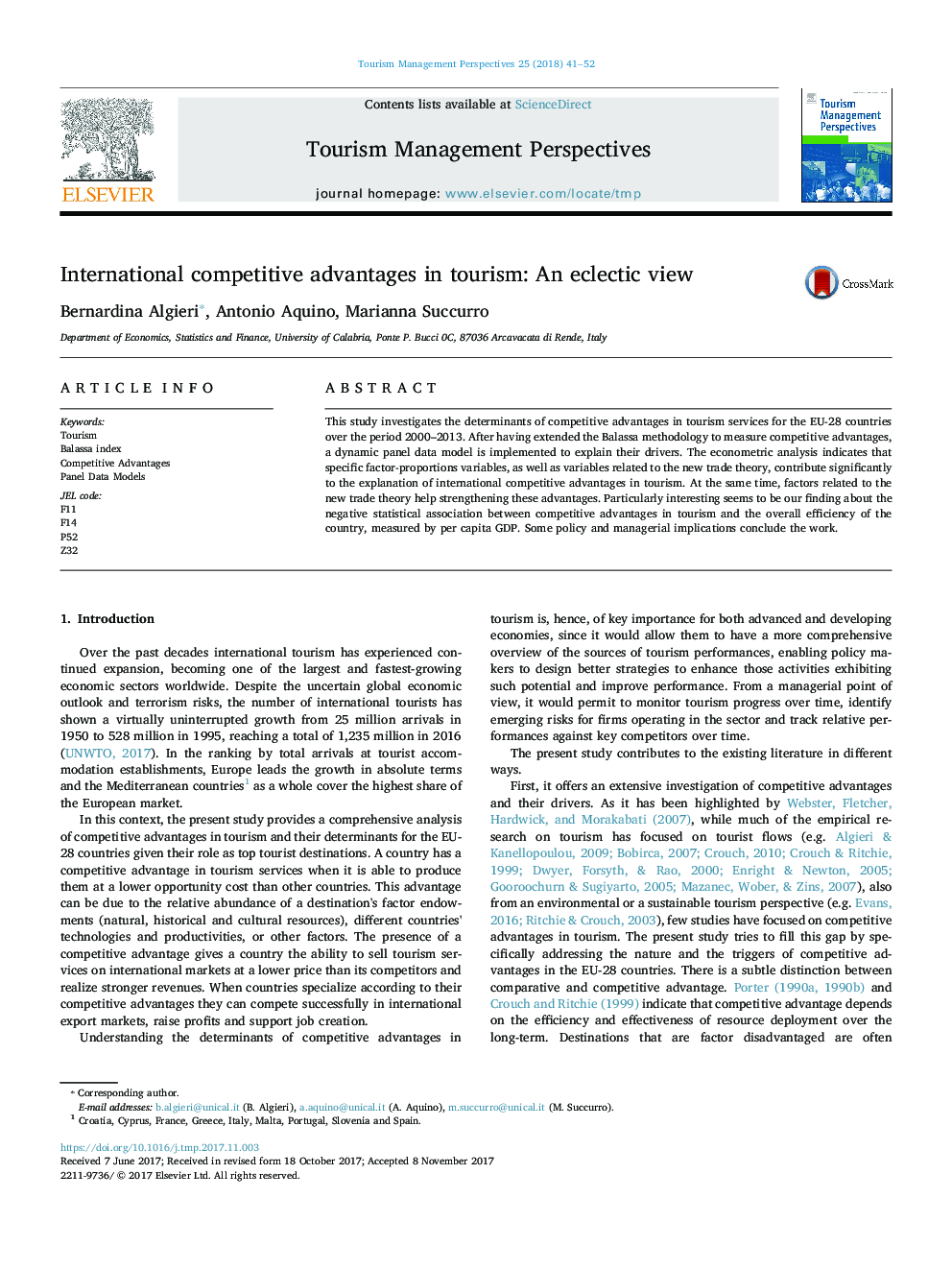| Article ID | Journal | Published Year | Pages | File Type |
|---|---|---|---|---|
| 7422774 | Tourism Management Perspectives | 2018 | 12 Pages |
Abstract
This study investigates the determinants of competitive advantages in tourism services for the EU-28 countries over the period 2000-2013. After having extended the Balassa methodology to measure competitive advantages, a dynamic panel data model is implemented to explain their drivers. The econometric analysis indicates that specific factor-proportions variables, as well as variables related to the new trade theory, contribute significantly to the explanation of international competitive advantages in tourism. At the same time, factors related to the new trade theory help strengthening these advantages. Particularly interesting seems to be our finding about the negative statistical association between competitive advantages in tourism and the overall efficiency of the country, measured by per capita GDP. Some policy and managerial implications conclude the work.
Related Topics
Social Sciences and Humanities
Business, Management and Accounting
Tourism, Leisure and Hospitality Management
Authors
Bernardina Algieri, Antonio Aquino, Marianna Succurro,
